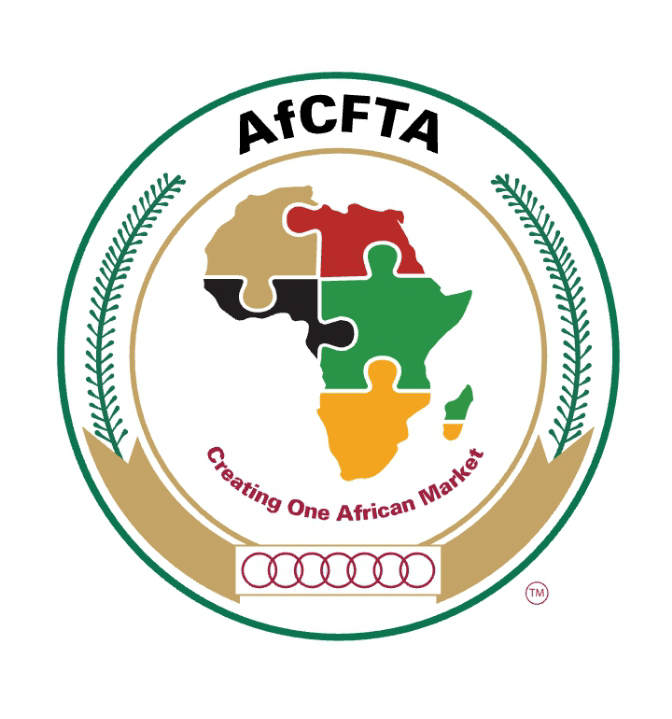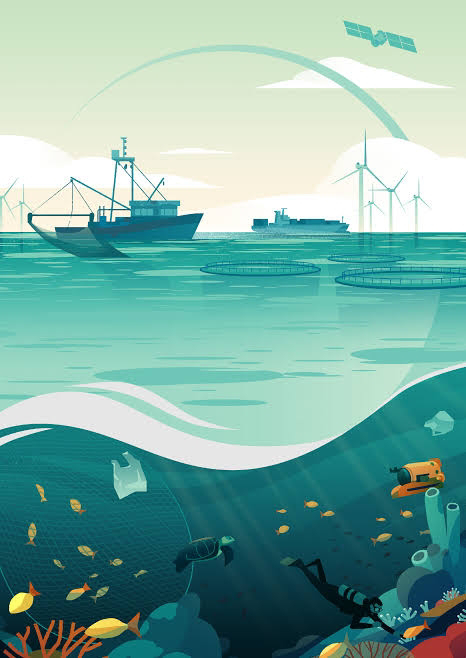UNLEASHING THE POTENTIAL: THE AFCFTA AND AFRICA'S SUSTAINABLE DEVELOPMENT
Abdulquadir Iyanda Jimoh
The Africa Continental Free Trade Area also known as the AfCFTA Trade will trade in Services Protocol drives competitiveness, economies of scale, & resource allocation. Boosting continental access & infrastructure for a thriving service economy!
The AfCFTA, Africa Continental Free Trade Area is one of the flagship projects of Agenda 2063: The Africa We Want. It is a high-ambition trade agreement, with a comprehensive scope that includes critical areas of Africa’s economy, such as digital trade and investment protection, amongst other areas. By eliminating barriers to trade in Africa, the objective of the AfCFTA is to significantly boost intra-Africa trade, particularly trade in value-added production and trade across all sectors of Africa’s economy.
The AfCFTA is the world’s largest free trade area bringing together the 55 countries of the African Union (AU) and eight (8) Regional Economic Communities (RECs). The overall mandate of the AfCFTA is to create a single continental market with a population of about 1.3 billion people and a combined GDP of approximately US$ 3.4 trillion. The AfCFTA is one of the flagship projects of Agenda 2063: The Africa We Want, the African Union’s long-term development strategy for transforming the continent into a global powerhouse.
As part of its mandate, the AfCFTA is to eliminate trade barriers and boost intra-Africa trade. In particular, it is to advance trade in value-added production across all service sectors of the African Economy. The AfCFTA will contribute to establishing regional value chains in Africa, enabling investment and job creation. The practical implementation of the AfCFTA has the potential to foster industrialization, job creation, and investment, thus enhancing the competitiveness of Africa in the medium to long term.
The AfCFTA entered into force on May 30, 2019, after 24 Member States deposited their Instruments of Ratification following a series of continuous continental engagements spanning since 2012. It was launched at the 12th Extraordinary Session of the AU Assembly of Heads of State and Government in Niamey – Niger, in July 2019. The commencement of trading under the AfCFTA was on January 1, 2021. The AfCFTA Secretariat is hosted in Accra, Ghana. His Excellency Wamkele Mene is the first elected Secretary-General to coordinate the implementation of the Agreement.
The potential of this regional economy strategy in building sustainable development and a future for African people cannot be understated. By creating a unified market and removing trade barriers, the AfCFTA will stimulate economic growth and development across the continent.
One of the key drivers of sustainable development is economic diversification. Many African countries are heavily reliant on the export of raw materials, which makes them vulnerable to price fluctuations and global economic shocks. By promoting trade in value-added production, the AfCFTA will encourage African countries to develop their manufacturing and service sectors, thus reducing their dependence on commodities. This shift towards a more diversified economy will not only create jobs and drive economic growth but also make Africa more resilient to external shocks.
Additionally, the AfCFTA has the potential to foster innovation and technological advancement in Africa. By facilitating the free flow of trade and investment across the continent, it will encourage the transfer of knowledge and technology between African countries. This exchange of ideas and expertise will enable African businesses to develop new products and services, improve production processes, and enhance their competitiveness on the global stage.
Furthermore, the AfCFTA will foster regional integration and cooperation among African countries. By overcoming trade barriers and harmonizing regulations, it will facilitate cross-border collaboration and joint ventures. This increased regional integration will not only enhance economic cooperation but also promote peace and stability in Africa.
In conclusion, the AfCFTA presents an unprecedented opportunity for Africa to achieve sustainable development and build a prosperous future for its people. By promoting economic diversification, fostering innovation, and encouraging regional integration, this regional economy strategy has the potential to transform Africa's trajectory and position the continent as a global economic powerhouse.
Please read more: au-afcfta.org.
#Agenda2063 #TheAfricaWeWant





Comments
Post a Comment